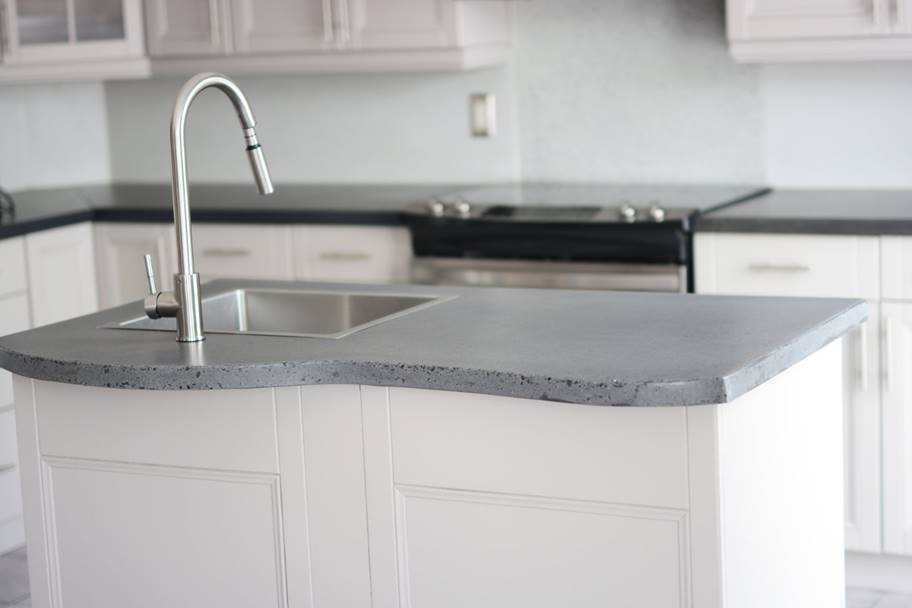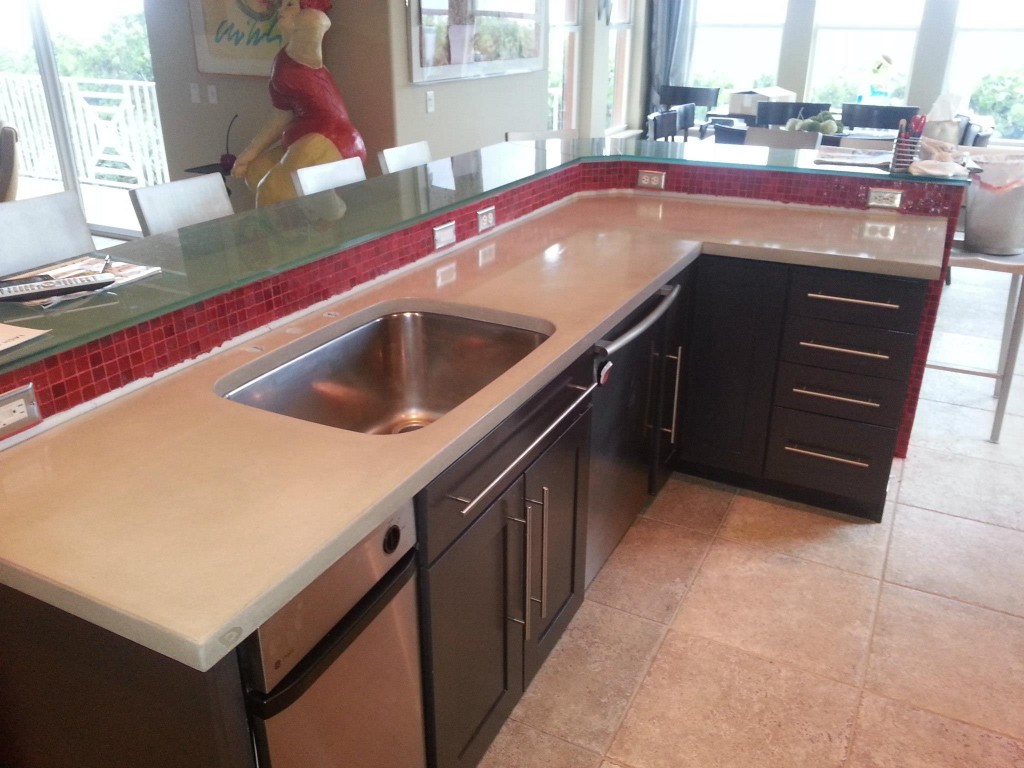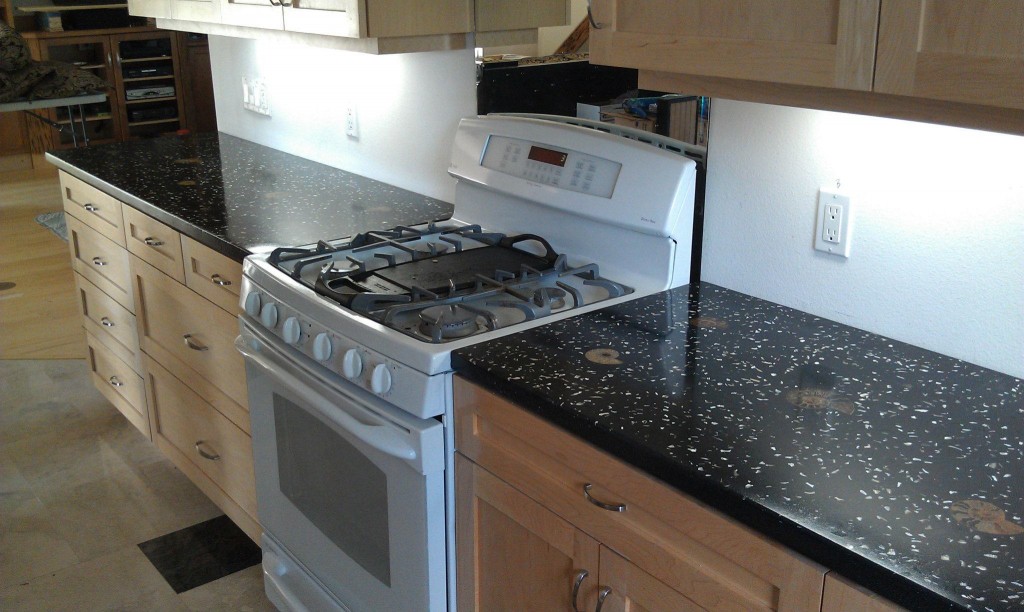Selling concrete countertops to a homeowner is a very different experience than working with a general contractor or architect or designer. For one thing, the homeowner will often not know exactly what to expect, or will have biased ideas of what the process is going to entail, so it’s very important to communicate well and effectively. Even if you’ve been selling countertops for years, you still might have some kinks in your processes to work out.
The sales process for each client will generally go through the same steps:
- Initial inquiry/info seeking
- Meeting for sample viewing or measuring
- Estimate
- Buying decision/closing
- Project execution
- Follow-up
Navigating the initial inquiry
“Show interest in and be excited about their project. Engage them in conversation.”
The potential client may have found your website via a web search, seen your yellow pages listing, or heard about you from a friend. They may call or email to get more information. Always respond to inquiries the same business day if at all humanly possible.
Spend most of your time asking and answering questions, not spewing information. Answer the client’s questions succinctly and in a way that is consistent with your messaging, and then encourage them to tell you more about what they’re looking for or to ask you more questions. Engage them in conversation.
Show interest in and be excited about their project. You don’t want to come across like you’re grilling them, but your goal is to learn as much about them as possible so that what you teach them about your company and your product fits what they are looking for.
Learn more here about how to establish trust with the homeowner.
As you talk to more and more people, you will develop your own style and wording for your answers. And you should always tailor your answers to that particular client’s concerns or needs. However, you will hear the same questions about concrete countertops over and over again.
Some Common Questions You Should Know How to Answer
“The more confident you can answer these common questions, the more your customer will trust you.”
Question: How does concrete compare to granite?
Answer: Concrete is very similar to granite in terms of physical properties. It’s a hard, durable countertop surface, and it weighs about the same as granite. It is templated and installed just like granite. It’s very practical in the kitchen. The main difference is the look. Concrete has a more natural, matte look, and it is completely customizable. It really fills a void in countertop looks.
Question: I’ve heard that concrete countertops stain and require a lot of maintenance. Is this true?
Answer: Concrete countertops actually behave similarly to granite in this regard. Granite countertops are also porous and have to be sealed and maintained. Most people don’t realize this because granite is usually too dark and patterned to show stains. Food, acids, and oil will not stain your countertop if wiped up immediately, and if left on for a longer period of time, they will cause only a light spot whose appearance can be minimized with a touch-up kit.
Question: How much do your countertops cost?
Answer: The cost depends on the square footage, what type of sink you have, backsplashes, edging. Do you have a sketch of your kitchen yet? I’d be happy to give you an estimate on the whole project.”
Question: Why are concrete countertops so expensive? It’s just concrete.
Answer: The materials are cheap – just sand and cement. It’s the craftsmanship and work that go into it. It’s like the reason a violin costs more than a wooden pallet – the same material, but different levels of craftsmanship. Concrete countertops are really the highest-end possible countertops because they’re made completely from scratch custom and personalized for you.
Get detailed answers to many commonly asked questions here.
The Bottom Line
If you’re going to have a successful business relationship with a client, you need to be absolutely crystal clear on what their desires are, and how you plan to meet those desires. You need to be honest: if they have unrealistic expectations, do NOT assure them that you can make it work, but rather educate them as to what exactly you will be able to do and what you CAN’T do.



